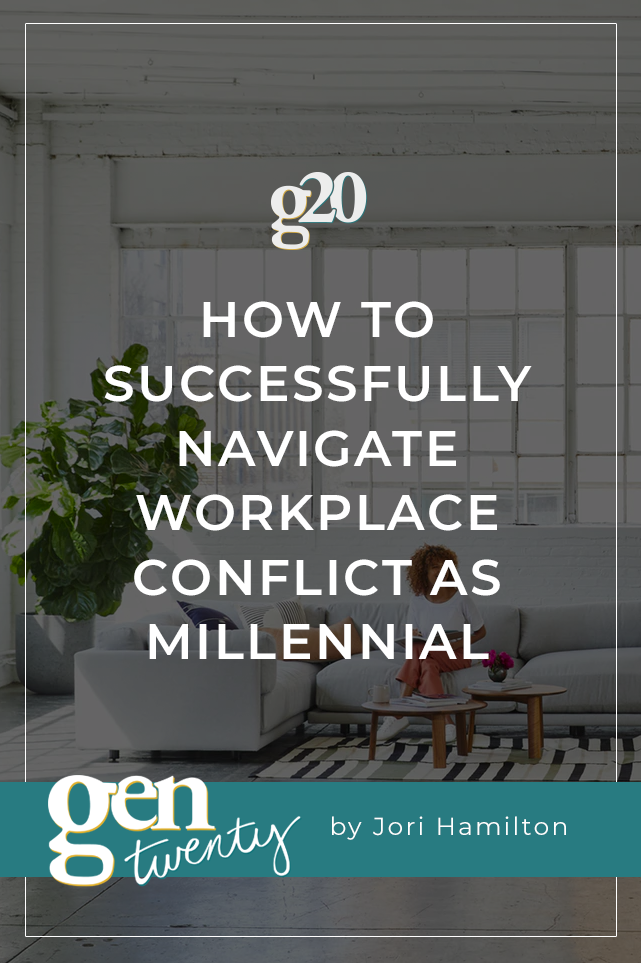
It’s very likely that every one of us has had trouble at work at one point or another. Maybe you have horror stories about your first job. Perhaps you’re in the middle of a workplace conflict right this second. If you’re unprepared for dealing with workplace conflicts in person, you probably feel nervous about going into your job every day — and that’s a terrible way to live.
Millennials tend to struggle with workplace conflict more than previous generations. Conflict resolution and personal interaction aren’t their strong suits, at least not in the traditional sense. A dependency on digital devices and an increased focus on our social lives online has made it difficult to make the leap to solving in-person conflict. The good news is that employees of this generation can find ways to handle workplace interactions and issues, allowing them to become an important and approachable part of the team.
How to Successfully Navigate Workplace Conflict as a Millennial
Millennials and Workplace Conflict Explained
According to psychologist Linda Gravett, “One of the primary reasons in this past year or two that I’ve been called in to coach executives or companies around generational differences is to help them leverage the skills and talents of millennials.” Gravett goes on to explain that millennials seem to have more trouble dealing with conflict than employees of other generations, and they often don’t possess the social skills to directly handle issues.
In general, millennials have a different outlook on life and a novel approach to work that other generations don’t have, which naturally puts them in a position of conflict in the baby boomer’s workplace. Older generations don’t understand them, and they don’t understand others.
How Millennials Differ From Other Generations
While “narcissistic” is a word often used to describe Gen Yers, that’s too simplistic an explanation for their struggles in the workplace. Instead, it helps to look at how millennials are different from other generations in the ways that impact the workplace:
- Baby boomers raised their children telling them that they could have anything they wanted if they tried hard enough. This led to 20-something millennials striving to find the perfect career that would not just make them money but also make them happy.
- Millennials did not want to settle for a job or career that made them unhappy, which led to a lot of job-hopping.
Members of this generation are upfront about their interest in work-life balance, and they don’t want to put their personal lives on a shelf for the sake of their professional lives. - They rely on gadgets and the internet to carry out tasks and stay connected. When placed in a company that handles things in a more traditional way, they’ll have trouble adapting, leading to a lot of stress and anxiety.
All of these characteristics make for employees who struggle to fit in. Wanting things to be a certain way and not settling for anything less can cause conflict when companies simply aren’t able to meet those needs. Mix that with a dependency on digital communication and you’re left with many employees who don’t know how to approach or resolve a problem face-to-face.
Related: Managing Stress and Anxiety at Work as a Millennial
How Millennials Can Cope With Workplace Conflict
When it comes to having millennial workers who are able to cope with workplace conflict, a lot of the responsibility falls on management. Leaders have to show their employees what’s expected during a time of conflict. Moreover, they should clarify that conflict is a completely normal part of business and that it provides the opportunity for beneficial change. By seeing that conflict isn’t something scary, Gen Yers may immediately feel more comfortable facing it.
Leaders can take a three-step approach to make this generation (and all the others) more comfortable with workplace conflict:
- Model the behavior you want to see from millennials. For example, if a manager is having trouble with another manager, they can discuss their differences during the next company meeting in front of everybody (assuming both managers have agreed to this ahead of time, of course).
- Praise the correct behavior. When you see an employee handling conflict the right way, praise them publicly so other employees pay attention.
- Coach the opposite behavior, but do so privately. If employees feel that they’re embarrassed or put on the spot for doing something wrong, they may be nervous about ever trying it again. Instead, when coaching your employees to handle conflict differently, do so in private.
If you think it’ll serve both parties, consider talking to them at the same time — you can act as a mediator as you instruct them to work through their issues or pursue professional mediation.
Employers can also meet millennials halfway — it always pays to try out new strategies and leadership styles. On one hand, teaching millennials how to handle conflict in person is helpful. On the other, you may get more out of them if you speak their language.
Related: 4 Ways To Find Confidence At Work When You’re Unsure of Yourself
For example, millennials are used to leaving reviews online when they have a bad experience. By creating an online portal where they can communicate with the person they’re in conflict with, they may find it easier to express themselves and resolve the issue.
While businesses may find it difficult to integrate millennials into the workforce, it’s worth it to figure it out. This generation is making waves when it comes to business, and it’s not going away any time soon. Plus, they’re influencing the next generation. By learning how to adapt now, you’ll be prepared for similar issues in the future.
By Jori Hamilton
Jori Hamilton is a writer from the pacific northwest who enjoys covering topics related to work, social justice, environmental issues, and more. You can follow her on twitter @hamiltonjori
